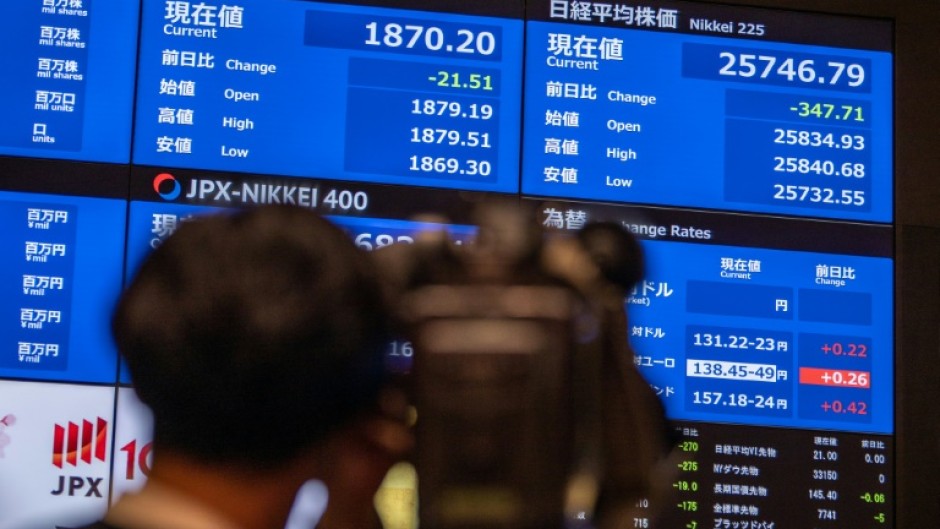
BEIJING - Asian markets built on their positive start to the year as investors brushed off a drop on Wall Street and weighed China's reopening moves with surging Covid cases, while recession concerns kept any rally in check.
China's shift out of almost three years of zero-Covid has been widely welcomed but the breakneck speed at which authorities have lifted restrictions has led to an explosion of cases across the country, dealing another battering to economic activity.
However, analysts said concerns about the impact of the mass outbreak were playing off against optimism that the long-term outlook was positive as infections eventually come down and businesses restart.
Hong Kong rose more than one percent again Wednesday, and Shanghai also enjoyed a second straight day of gains.
Stephen Innes at SPI Asset Management said: "With growing expectations for more back-loaded positive 'reopening impulse' in the second quarter, this could be a classic case of investors needing to wear some short-term pain for longer-term gain.
"Hence, we suspect any dips in China's stock market sentiment will be shallow."
And OANDA's Edward Moya added that, after some painful years in China's markets, there were now questions about whether they could "outperform if their Covid reopening continues without any major disruptions".
"China still has to deal with a struggling property market, but hopefully that will show signs of improving on more support measures."
There were also gains in Sydney, Seoul, Singapore, Wellington, Taipei, Jakarta and Manila, although Tokyo fell more than one percent on traders' first day back from a long weekend.
Traders will be keeping a keen eye on the release later in the day of minutes from the Federal Reserve's December policy meeting, where they slowed their pace of interest rate hikes but signalled they would end at a higher level than expected.
The news scuttled a pre-Christmas rally across world markets and the minutes will be pored over for clues about policymakers' plans for this month's gathering.
There is a broad consensus that the Fed's tightening measures to tame runaway inflation will tip the United States into recession, while the head of the International Monetary Fund has also warned a third of the global economy will contract this year.
Former New York Fed boss William Dudley told Bloomberg Surveillance on Tuesday: "A recession is pretty likely just because of what the Fed has to do."
However, he added that "what’s different this time, I think, is that if we have a recession, it's going to be a Fed-induced recession and the Fed can end the recession by subsequently easing monetary policy".
Dudley said he did not see "a big risk of a financial-instability cataclysm that pushes the economy into a deep recession".
Crude prices were virtually flat, having been hammered more than four percent Tuesday by a range of issues including a mild European winter, a pick-up in the dollar and China's reopening uncertainty.
"Rising Chinese Covid infections could weigh on demand in the immediate term," said Warren Patterson at ING Groep. He added that the long-term outlook remained better as growth picked up.

